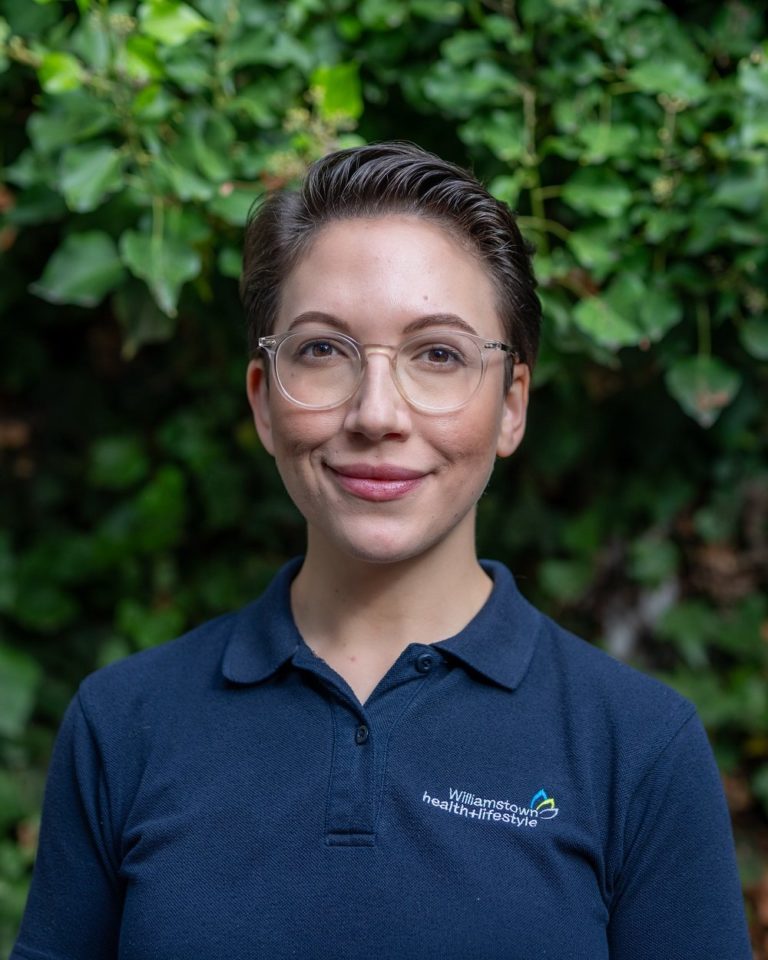Newport Myotherapist clinic
Myotherapy is a client-focused allied health profession centred on the assessment, treatment, and management of musculoskeletal dysfunction and pain. Practitioners apply manual therapy, evidence-based decision-making, and clinical problem-solving to create personalised care plans tailored to the individual’s goals and needs.
Newport Myotherapists are trained to assist and aid in the prevention, early intervention, and management of chronic musculoskeletal conditions. Treatment methods may include massage, dry needling, cupping techniques, joint mobilisation, education, exercise prescription, and more.
What techniques do myotherapists use?
Trigger Point Therapy
Myofascial Stretching
Cupping
Dry needling
What conditions do we treat?
Sport Specific
Occupational and sports injuries
Soft Tissue & Musculoskeletal Injury
Chronic pain
Fibromyalgia
Shoulder, Wrist & Elbow Pain
Tennis and golfer’s elbow
Shoulder impingement syndrome
Frozen shoulder
Hip, Knee & Ankle Pain
Achilles tendinopathy
Shin splints
Sciatica
Plantar Fasciitis
Headaches & Migraines
Tension headache
Jaw & Neck Pain
Postural strain
Back Pain
Chronic pain
Disc injuries
Scoliosis
What kind of care does a myotherapist provide?
Myotherapists offer evidence-based assessment, hands-on care, and rehabilitation for musculoskeletal pain and related conditions that stem from muscle or myofascial dysfunction.
Myofascia are delicate but strong sheets of connective tissue that support and separate muscles, while also including the tendons and ligaments that link muscles and bones.
Once symptoms have eased, treatment shifts towards restoring mobility by adjusting activity levels, aiming to minimise the chance of reinjury and support ongoing movement and wellbeing.
Which therapy techniques are part of a myotherapist’s care?
Our team uses manual therapy methods designed to ease pain and correct postural issues, including:
- Myofascial release
- Deep tissue, sports, and/or remedial massage
- Trigger point therapy
- Dry needling
- Cupping
- Muscle stretching
- Hot or cold therapy
- Joint mobilisation
- Muscle energy techniques
- Soft tissue manipulation
- Transcutaneous electrical nerve stimulation (TENS) therapy
- Corrective exercises
What can you expect when seeing a myotherapist?
The first step in your myotherapy consultation involves a detailed subjective examination. This may include questions about where you feel pain, how the issue started, your daily activities, medical background, and what you hope to achieve through treatment.
Your qualified therapist will then perform a thorough assessment of areas of pain, posture, and functional limitations. They will then use this information to determine the cause of your discomfort and put together and discuss a management plan with you.
How can myotherapy support your health?
Myotherapy offers many benefits for enhancing your overall physical health and well-being, including:
- Pain relief (by targeting trigger points and addressing mechanical causes of pain)
- Reduced inflammation and blood flow
- Improved mobility and flexibility
- Enhanced strength
- Less muscle stiffness
- Better body alignment
- Decreased stress and tightness
- Improved sleep
- Improved mood and mental well-being
It also plays a role in enhancing athletic performance by helping athletes increase their range of motion, reduce fatigue, and improve their movement efficiency. All of this may help with injury prevention.
Myotherapy vs massage – what’s the difference and which should you choose?
While massage techniques like lymphatic drainage are used in myotherapy, the approach is more comprehensive. The goal is to provide lasting relief and address the source of your pain and discomfort.
Remedial massage is widely used in various forms of therapy to assist with short-term relief and has a clinical, therapeutic aim. In contrast, relaxation massage is primarily designed to ease stress and does not have a clinical focus, though it may still help release muscle tightness.
Meet our myotherapists near Newport

Alana Carr
Alana is an enthusiastic myotherapist and clinical pilates instructor, passionate about helping people manage pain and improve their quality of life.
Alana not only uses her hands on treatment skills to reduce pain and improve mobility but she places a strong emphasis on education and movement therapies.
As a clinical pilates instructor she prescribes corrective exercise advice for her clients. Alana enjoys working with chronic pain, lower back/hip pain and postural related pain clients however also enjoys working with the general population to help reach their health and well being goals.
Anyone can benefit from myotherapy with Williamstown Health + Lifestyle
There’s no reason to endure constant muscular tension – the myotherapy team at Williamstown Health + Lifestyle is here to support people of all ages and lifestyles.
Whether your muscles are sore from extended work shifts or you’re managing the physical toll of high-performance sport— we get it, and we’re here to support you.
Get in touch with our helpful team today and learn more about how myotherapy may help manage your pain and discomfort.